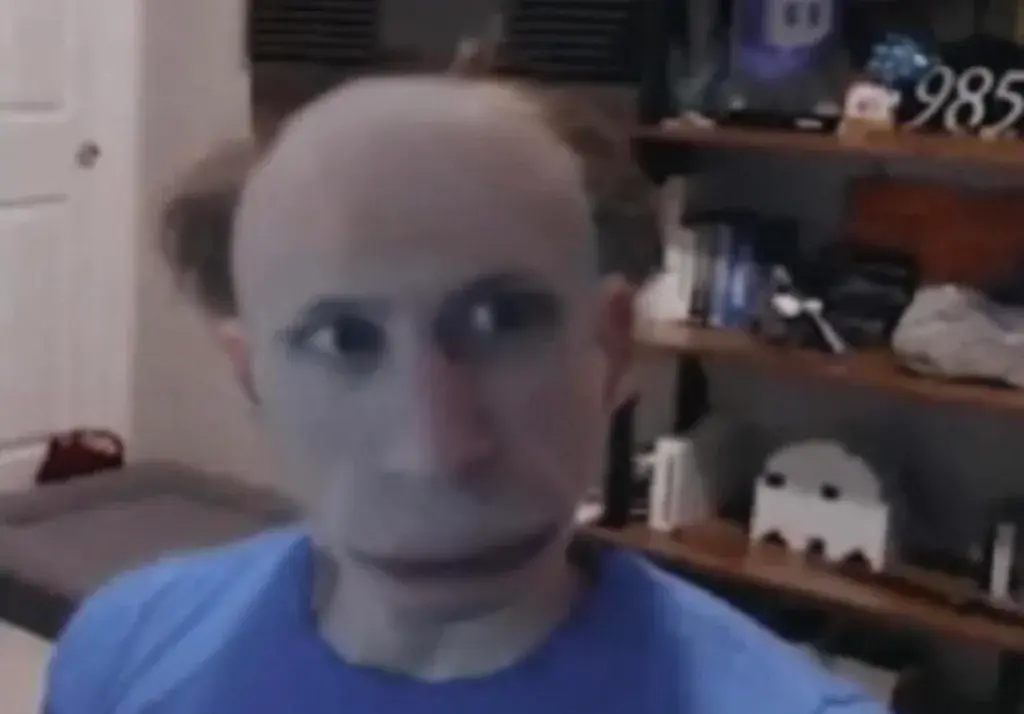People keep telling me I only deal in absolutes, and that it’s unhealthy and I should sometimes find the middle-ground between two different positions. (I.e. caring for myself vs others, putting all my energy on a task vs not even bothering)
So what’s the procedure to finding a middle-ground so I can apply it to literally everything in my life, as the Autistic Gods demand? \s
there are only two ways to deal with binary thinking…
Oh man, it looks like you have an unstable equilibrium between two conflicting positions, if only there was some sort of philosophy to help you deal with that, some kind of “Twoalectics”
Ah, that thing developed by Georg Begel and Carl Marks!
That’s what I thought once I actually started understanding dialectics, but it’d be such a cognitive drain to do it all the time (see what I’m talking about?).
Feels like every 3 or so texts by Lenin that I read he says something like “our position depends on the conditions of the situation” and I don’t have that much brainpower to constantly analyse those conditions.
Yeah, this was a little tounge in cheek, but the general way to work with ethics is that you use the complex stuff to develop general rules to follow (or virtues to uphold if you want a more vibes based approach).
Obviously, there will be edge cases, and then you have to work out if it’s worth your time to solve from first principles or just eyeball it and hope for the best.
Focus on what’s in between them. The boring shit that seems like it doesn’t matter. That’s the normie zone. That’s where they spend most of their time, and that’s actually what most of life is even if we don’t notice it. You have to work hard to construct this space in your head. It’s gonna take a while.
Reading through this post as OPs words absolutely apply to me as well - thanks for posting this!
In what context is this coming up? Political discussions? Dietary recommendations? In some situations there are actually just correct answers. The solution in that case isn’t to diversify your thinking but to develop rhetorical tools to comfort people about being wrong
Usually it’s lifestyle choices. I’ll never not be stubborn politically, but I recognise that I am often too extreme and rigid in my own life to my own detriment.
One random example would be whether I go to parties or not. I am aware that my tolerance for loud noises is very variable, so sometimes I could actually half-enjoy going. But instead of analysing it on a case-by-case basis I just put out a rule that says “no parties” or “yes parties” as a binary shortcut.
I mean, that seems straightforward. You have learned that some kinds of party don’t work for you. There are other kinds of parties. You sound like you would enjoy kickbacks or bbqs or activities based parties. If ragers, frat parties, rock outs, or the like don’t do it for that’s a preference. You should still occasionally try to try new things to expand your pallet but a preference is a preference. At some point you are wasting your time and theirs
Sometimes, 2 options present themselves to you, and you feel like you HAVE to choose between them (when there might be a significant downside to them). It might help to sleep on things. Coming back to look at hard decisions with a clear mind, to find a nice way to ‘split the difference’ so to speak, can be a good way to avoid that issue.
If you don’t have the time to sleep on it, another thing you can do is consider things from another person’s perspective. Would you feel it’s unreasonable, from their perspective, for you to make a decision that benefits you? Would you expect them to do the opposite if the roles were flipped?
And finally, it’s a matter of not being too hard on yourself to people-please (or the opposite). That just takes time.
Removed by mod
I suppose making a habit of checking in with yourself when you’re making a decision. Asking yourself, what are my options. If they seem like diametrical opposites, then maybe it’s a false duality.
There are two ways around false dualities. Either it’s actually a spectrum rather than a binary, so there is one or more middle paths. Or it’s actually an illusion due to some bias, so you have to think outside the system.
An example for the first might be adding sugar to your coffee. It might seem like a choice between unhealthy and unflavorful. But actually you can choose exactly how much sugar you put so there is some flavor, and it’s not too unhealthy.
An example for the second is like a choice between voting Democrat or Republican in the US. Reality is that there are other parties, and the bourgeois democratic system itself is the end-all-be-all for political systems.
I tend to overanalyze or get anxious so having a formula like this helped me, and doing stuff like meditation or writing down thoughts and plans helped with making the habit of thinking before acting
Fighting the urge to make a star wars prequel “joke”
A cognitive behavioral therapy approach might be helpful. The book Feeling Good has a variety of info on CBT and various ways to approach mental wellness through that framework. It specifically identifies common unhelpful patterns of behavior, and binary aka all or nothing thinking is one of them.
I like the “Think, Feel, Act” model, myself. In a nutshell, there is a mutual relationship between our rational thoughts and judgment, our emotions, and our behavior, and we can actually (to some degree) control this relationship with some intentional effort.
If you’re concerned about binary thinking, then the first step is recognizing when you’re having those thoughts, acknowledging how they make you feel, and considering what actions you intend to take based on those thoughts and feelings. If you want to change the pattern, start by intentionally changing your judgement of the situation. Do you need to pick one extreme or the other? Is that rational? Does it actually make sense, or is it just your default? Odds are, you can’t really make a good argument for binary thinking, so you can choose to be irrational, or you can choose to think a different thought.
From there, try to react to the new thought. Your emotions are necessarily driven by what your brain is telling you about reality, and so changing your thoughts about reality will impact your feelings.
Last, your feelings will drive your behavior. If you can reframe your judgment of a situation, you can change the emotional reaction to the situation, which can help you make different decisions about how to act. Your actions then produce results, which create your new circumstances, which then prompt you to form judgments, and so on.
If you’re struggling with binary thinking, first identify when you’re in a position where you perceive a binary choice, then practice thinking your way out of the binary by acknowledging the options in the situation that are not one of the two options, notice how you feel about the non-binary options, and then how you would act based on those feelings. You don’t have to believe immediately that the non-binary options are good ones, the point is to practice getting out of the headspace of needing to pick one extreme or the other. If you actually believe that binary thinking is a problem, then the practice of intentionally acknowledging that it’s a problem (because it’s irrational or unhelpful or stressful) and coming up with different ways to think about the situation should lead to different feelings and behaviors.
That’s a very condensed version of a more robust practice, but if it sounds like a useful or relevant exercise then you shouldn’t have too much trouble finding a better explanation of the process.

This looks very promising, I’ll take a peek at that book. Thanks comrade!
Do you feel like this with your personal relationships e.g. this person is my friend or this person hates me?
It affects every facet of my life. But that’s just me deflecting from the fact that the answer to your question is an enthusiastic “YES!” and that was partly what triggered this post lol.
Until a friend told me they had ADHD and always forgot to reply (and that she was comfortable enough with me to not get anxious over it), I always thought I had said something off-putting or offensive by accident and was getting ignored.
It also goes the other way around. Either I really like the person and think about them way more than I think is the neurotypical standard, or I give zero fucks about their entire existence “off-screen”. Thankfully I’m not prone to hate.
I think for the pathology of borderline, what you think about what they think of you is very important and determines the course of relationships.
A common experience is they’ll say something that you disagree with or is critical of you (maybe rightly so, but don’t focus on that right now), you assume they hate you and think they’re secretly plotting to reject you or something. This can manifest with something as mild as a little panic attack when someone pulls you up on something, to active sabotage of relationships or creating a “scene” because someone didn’t save their last cigarette for you.
Other people are right about large political things. There are absolutely good guts and bad guys. Some things do have nuance though, but really I’d focus on how you view personal relationships if it is distressing you. We’ll still be here.
Finding middle ground is just lib shit. The vast majority of dichotomies are false dichotomies, and there are always more than two choices. Likewise, sometimes what seem like opposites aren’t actually opposites.
caring for myself vs others
Since you are a social being, part of caring for yourself involves dealing with other people. Likewise, you can’t care for others if you don’t know or haven’t even cared for yourself. The two form a dynamic and can’t be meaningfully separated like two opposites.
putting all my energy on a task vs not even bothering
It heavily depends on the task and the context in which the task exists in. Some things are worth prioritizing, some things can be shelved, and some things are straight up detrimental and should be dropped as soon as possible. No one here can really answer that for you because we aren’t you and we don’t know you. The only real way for you to answer this is to experience life and have the conceptual tools to analyze what went right, what went wrong, and so on before experiencing life again based on your previous introspection.









